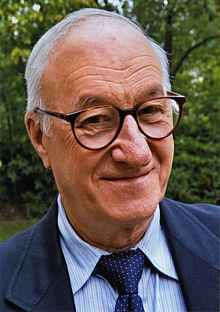Bandura, Albert

Bio: (1925-2021) Ukrainian-Canadian psychologist. Bandura was born in Canada, but he completed his studies at the University of Iowa, where he received his doctorate in clinical psychology in 1952. He taught at Stanford University. At the beginning of his career, he studied social learning, that is, learning based on observing other people's experiences. He studied how the behavior of a person affects his environment and the dynamic interrelationships of the environment, the behavior of a person, and his internal psychological processes. At the end of the 1950s, Bandura became interested in the phenomenon of aggressive behavior. In 1961 and 1963, Bandura conducted his famous "Bobo doll" experiments in which he studied the influence of the aggressive behavior of adults on the behavior of children. Bandura gradually moved from a behaviorist perspective to a cognitive psychology perspective. In his great theoretical work Social Learning Theory (1977) he intended to create a unified theoretical framework for the analysis of human thoughts and actions. Later, he began to investigate the determinants and mechanisms of observational learning. Bandura divided the models that people orient themselves into three types: living (the behavior of a real person), symbolic (e.g. a character from a movie), and verbal (the behavior of a person in a story or novel). He believes that in the second half of the twentieth century, the importance of symbolic models increased due to the increase in the availability of technology and electronic media.
Bandura, in his book Social Foundations of Thought and Action: A Social Cognitive Theory (1986), describes people as self-organizing, proactive, and self-reflective, as opposed to the dominant view of people as products of their environment or inner cognitive-affective forces. He stressed the importance of the human extraordinary ability to use symbols and imagery. Symbolic capabilities allow humans to comprehend their environment, plan their actions, solve complex problems, gain knowledge through reflection, organize their experiences to create structure, meaning, and continuity in their lives, and have complex communication, not only with those near them but even with those who are far away in time and space.
Main works
Adolescent Aggression (1959);
Social Learning and Personality Development (1963);
Principles of Behavior Modification (1969);
Aggression: A Social Learning Analysis (1973);
Social Learning Theory (1977);
„Self Efficacy: Toward a Unifying Theory of Behavioral Change“, in Psychological Review (1977);
Social Foundations of Thought and Action: A Social Cognitive Theory (1986);
Self-Efficacy in Changing Societies (1995).

